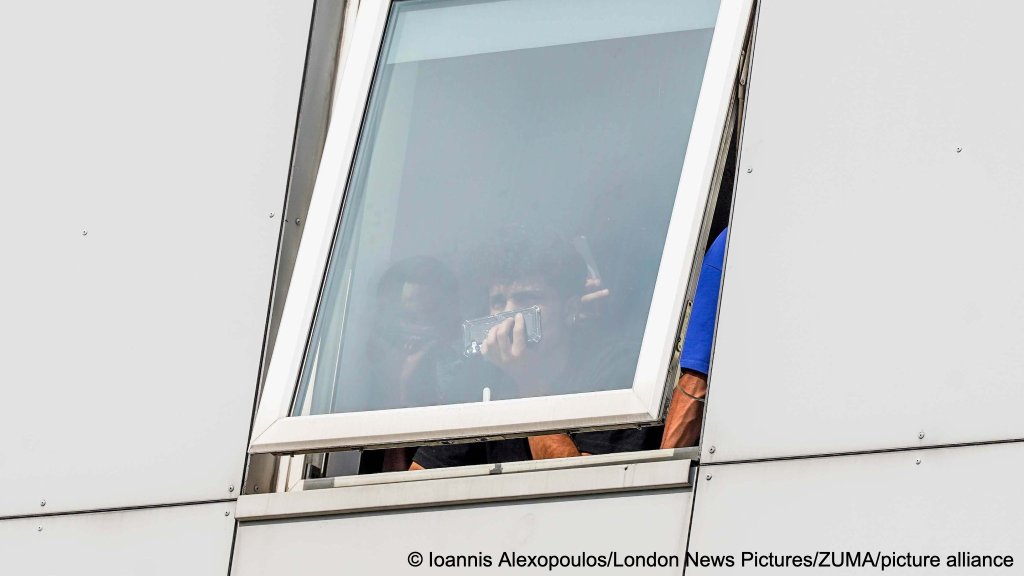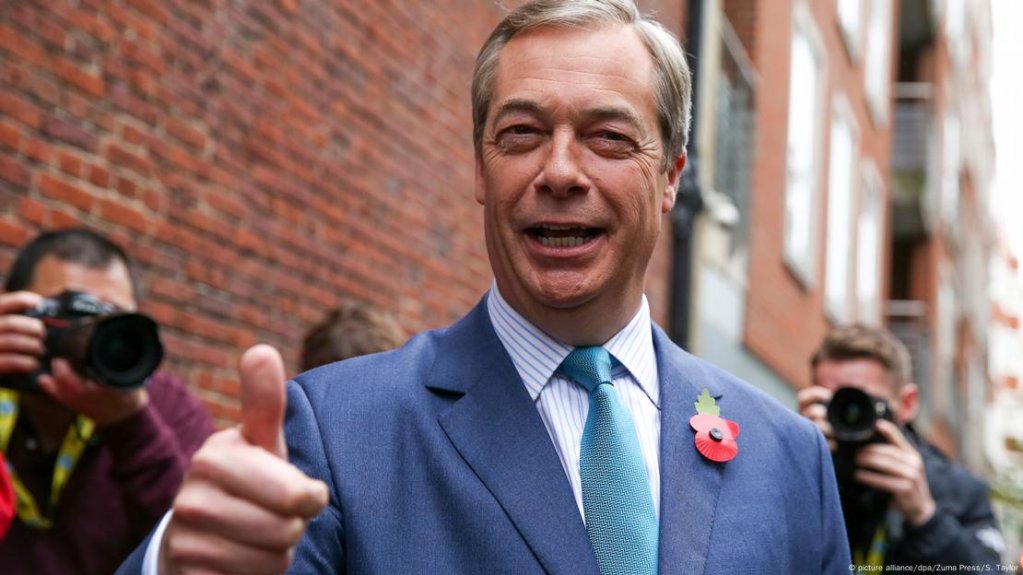The political infighting over Britain's use of hotels for temporary migrant accommodation has further heated up in recent days. New figures show that the UK is grappling with new levels of asylum procedures.
According to the UK Home Office, more than 111,000 people have filed asylum applications in Britain in the twelve-month period from June 2024 to June 2025, marking a new highpoint since current records began in 2001.
While the number of asylum claims is on the rise, officials have become faster at processing those applications in a bid to clear a major backlog.
By the end of June, some 91,000 people were still awaiting a decision on their asylum cases, said the Home Office -- down nearly a quarter on the backlog at the same time last year.
Irregular immigration remains the main talking point in the UK, as measures introduced by Prime Minister Keir Starmer to limit arrival numbers are barely yielding any results.
Read AlsoUK: Hotels may continue to house asylum seekers due to backlog
Epping hotel case reignites migrant hotel debate
Most recently, the issue of housing asylum seekers in hotels while they await the results of their application has become a talking point again, after a council just outside of London took the government to court and won a case, which could set a precedent across the country.
Epping Forest District Council was granted an injunction earlier in the week to have asylum seekers temporarily removed from The Bell hotel in its district, which has drawn violent protests for weeks on end after a resident asylum seeker was charged with sexual assault.

Read AlsoUK: Is there an increasing number of sexual assaults committed by male migrants?
Another major hotspot is the Britannia hotel in Canary Wharf, one of London's major financial hubs, where clashes during protests have also resulted in several arrests.
Other councils across the UK have threatened to follow suit if the government doesn't immediately move the migrants.
Read AlsoUK: Judge grants injunction to Epping council to have asylum seekers removed from hotel
Violent protests outside hotels
The Labour government had pledged to have completely phased out the use of migrant hotels by the time the next general election would take place, which is in 2029. For many, however, this timeline does not appear to be speedy enough.
In fact, instead of lowering the number of hotel facilities that are being used, the most recent numbers reveal that there is an 8 percent increase in hotel use, with over 32,000 migrants in the UK staying in hotels at the end of June.
The use of hotels, however, hit its peak numbers of over 56,000 cases under the previous Conservative government under former Prime Minister Rishi Sunak at the end of September 2023, attracting widespread criticism for costing billions of pounds of taxpayers' money.
Time and again, protests outside of asylum hotels have also turned violent, resulting in a need to beef up security around the perimeter of these facilities, adding further pressure on Britain's fiscus.
Currently, there are 210 hotels across the UK being used to house asylum applicants under the stipulations of a 1999 law, which dictates local councils to take any measures available to keep people from destitution, including providing accommodation in hotels.
Boost for right-wing and far-right
In the absence of a clear strategy out of the government's over-reliance on hotels to house migrants, the far-right Reform UK opposition party, led by anti-immigrant firebrand Nigel Farage, has been gaining ever-greater support, and would, according to most projections, win a general election in Britain right now.
Farage has been agitating his followers and supporters, saying that Britain's "streets are becoming more dangerous" as immigration numbers continue to be on the up.
Reform UK has been calling on councils across Britain -- especially the ones that are run by the party -- to follow the example of Epping Forest and obtain court injunctions to remove migrants from hotels.

However, local leaders from other parties are also looking at ways to end hotel accommodation for migrants. The Conservative Party mayor for Cambridgeshire and Peterborough, Paul Bristow, penned a letter to the Peterborough City Council, urging the authority to seek a similar injunction against the use of a particular hotel for migrants there.
Conservative Party opposition leader Kemi Badenoch meanwhile went as far as claiming that the removal of asylum seekers from The Bell hotel in Epping Forest was "a victory" for all "who just want their children to be safe."
The central government in London meanwhile is scrambling to explore its options in response to the Epping Forest court ruling, as there are no readily available alternative facilities to house the thousands of people awaiting the outcome of their asylum claims.
Read AlsoUK asylum system under scrutiny for severe housing failures
No stopping of the boats
Another new record that poses a significant challenge to UK government leaders is the fact that over 50,000 people have managed to cross the English Channel since Starmer became the UK leader in July last year.
According to Home Office data, this marks a rise of 27 percent compared to the previous year.
The vast majority of irregular arrivals to the UK come on small boats (88 percent), which Starmer had pledged to stamp out as part of his election campaign.

Over one year into his premiership, those numbers continue to soar despite the fact that the British government signed several agreements with various countries in recent months to try to interrupt the business model of people smugglers.
Among other things, the UK signed a returns deal with Iraq earlier in the week and launched a new program with France, which will allow Britin to send some small-boats arrivals back to France in exchange to accepting asylum seekers currently residing in France, who can prove family ties to the UK.
The most recent figures show that Britain's public spending on asylum had in fact fallen by 12 percent roughly since the time that Labour took over last year, down the equivalent of about 5.5 billion euros.
Read AlsoUK reaches migrants return deal with Iraq
with AFP, dpa
